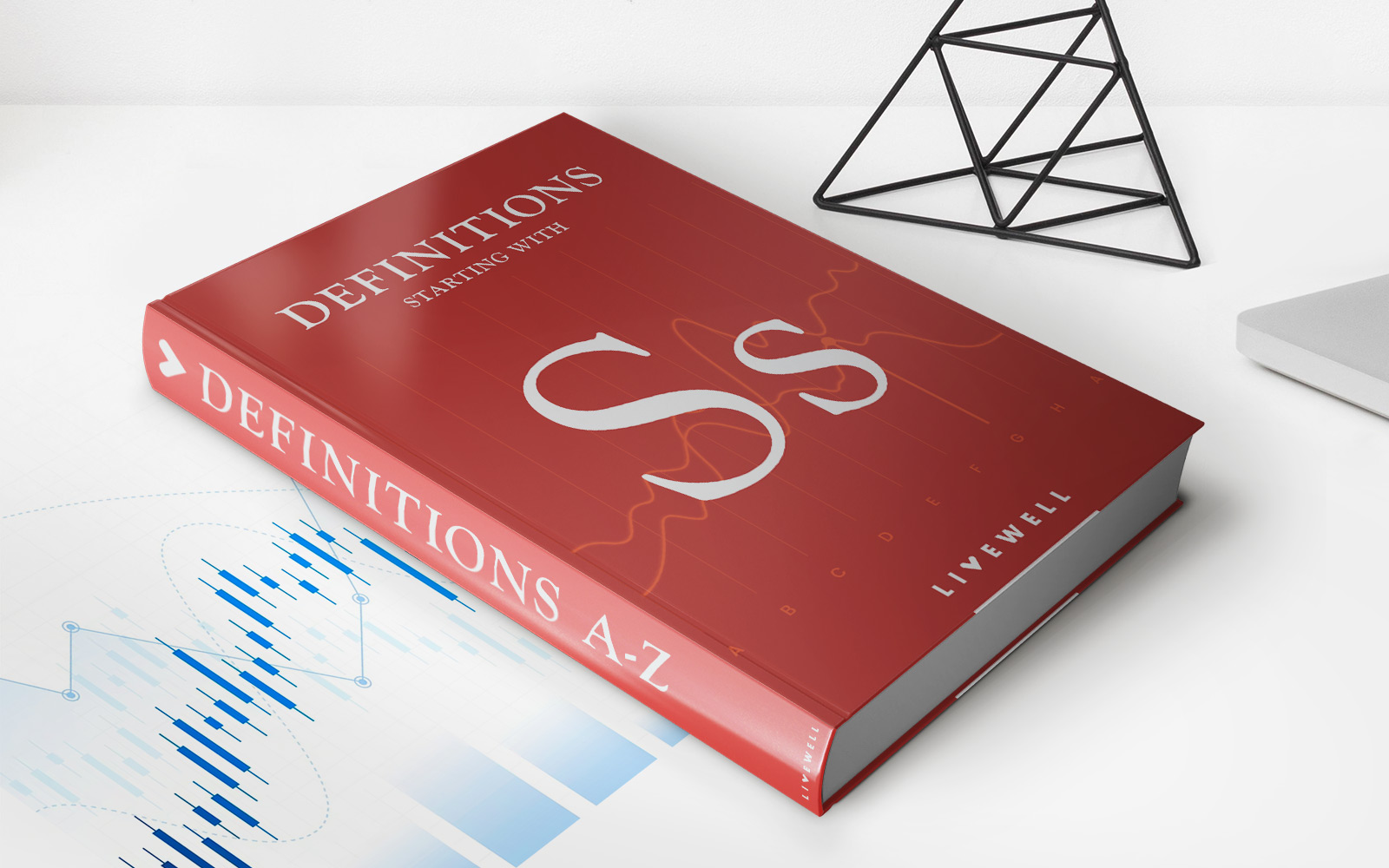

Finance
Why Get Life Insurance If You’re Single?
Published: October 14, 2023
Discover the importance of life insurance for single individuals and how it can provide financial security. Protect your future with proper planning and ensure your finances are safeguarded.
(Many of the links in this article redirect to a specific reviewed product. Your purchase of these products through affiliate links helps to generate commission for LiveWell, at no extra cost. Learn more)
Table of Contents
Introduction
Life insurance is often seen as a financial tool for married individuals or those with dependents. However, overlooking life insurance simply because you’re single could be a mistake. While being single means you may not have the same level of financial responsibility as someone with a family, there are still several important reasons to consider getting life insurance coverage.
Life insurance serves as a safety net and can provide financial protection for your loved ones in the event of your untimely death. Even without dependents, you likely have significant financial obligations that would need to be addressed if something were to happen to you. By having a life insurance policy in place, you can ensure that any outstanding debts, funeral expenses, and other financial responsibilities are taken care of, easing the burden on your family and loved ones during an already difficult time.
Additionally, life insurance offers a range of benefits beyond just financial protection. Many policies come with the option to build cash value, which can serve as a savings vehicle for future needs such as buying a home or funding retirement. There are also potential tax advantages associated with life insurance policies, making it a valuable asset for your overall financial plan.
While it may be tempting to assume that life insurance is unnecessary when you’re single, it’s important to consider the potential future responsibilities and expenses that could arise. In this article, we will explore why getting life insurance even if you’re single makes financial sense and how it can provide peace of mind and security for you and your loved ones.
Understanding Life Insurance
Before delving into the reasons why you should consider life insurance as a single individual, it’s essential to have a basic understanding of what life insurance is.
Life insurance is a contract between you and an insurance company. In exchange for regular premium payments, the insurance company promises to provide a lump sum payment, known as a death benefit, to your designated beneficiary upon your death. This financial protection can help cover various expenses and obligations that may arise after you’re gone.
There are different types of life insurance policies available, including term life insurance and permanent life insurance. Term life insurance offers coverage for a specific period, such as 10, 20, or 30 years. If you pass away during the term, the policy pays out the death benefit to your beneficiary. Permanent life insurance, on the other hand, provides coverage for your entire life and often includes a cash value component that can grow over time.
When considering life insurance options, it’s important to assess your individual needs and financial situation. Factors such as your age, health, financial goals, and future responsibilities should all be taken into account. Consulting with a financial advisor or insurance professional can help you determine the most suitable type and amount of coverage for your specific circumstances.
Now that we have a basic understanding of life insurance, let’s explore the reasons why it’s wise to consider getting a life insurance policy as a single individual.
Financial Protection for Loved Ones
One of the primary reasons to consider getting life insurance as a single individual is to provide financial protection for your loved ones. While you may not have dependents, you likely have people in your life who would be impacted by your death, such as parents, siblings, or close friends.
If you were to pass away unexpectedly, your loved ones may be left with various financial burdens. This could include costs associated with your funeral and burial arrangements, outstanding debts like credit card balances or student loans, and other expenses that may arise from the management of your estate.
By having a life insurance policy in place, you ensure that your loved ones won’t be left with a substantial financial burden during an already emotionally challenging time. The death benefit from the policy can help cover these financial obligations, alleviating some of the stress and allowing your loved ones to focus on grieving and healing.
Additionally, if you have co-signed loans or shared financial responsibilities with someone, such as a mortgage or business partnership, your life insurance policy can provide the necessary funds to handle those obligations. This can prevent your loved ones from being burdened or potentially losing valuable assets due to financial strains.
While it may be difficult to think about the possibility of your own death, considering life insurance is a responsible step to ensure that those you care about are protected financially if the worst were to happen.
Beneficiary Designation
When you purchase a life insurance policy, you have the opportunity to designate a beneficiary – the person or entity who will receive the death benefit upon your passing. As a single individual, you may have more flexibility and options when it comes to choosing your beneficiary.
While many married individuals typically name their spouse as the primary beneficiary, as a single person, you have the freedom to select anyone you wish. This could include family members, close friends, or even charitable organizations that are meaningful to you.
Choosing the right beneficiary is an important decision. It’s essential to consider who would benefit the most from the financial support provided by your life insurance policy. Think about individuals who rely on you financially or those who would be responsible for managing your estate and financial affairs in the event of your death.
Additionally, it’s important to review and update your beneficiary designation regularly. Life circumstances change, and you may want to modify your beneficiary designation to reflect those changes. For example, if you entered into a long-term relationship or got married, you may want to consider updating your beneficiary designation to reflect your new circumstances.
By carefully selecting and updating your beneficiary designation, you can ensure that the death benefit from your life insurance policy is directed to the person or organization you choose, providing financial security for them when they need it most.
Coverage for Debts and Expenses
Even as a single individual, you may have financial obligations that would need to be addressed in the event of your passing. These obligations can include outstanding debts, loans, or other financial responsibilities that you have taken on.
Having a life insurance policy can provide coverage for these debts and expenses, ensuring that they are not passed on to your loved ones or become a burden on your estate. The death benefit from your life insurance policy can be used to pay off any outstanding balances, such as credit card debt, student loans, or a mortgage.
Without life insurance, the responsibility of paying off these debts may fall to your family or other beneficiaries. This can create a significant financial strain during an already challenging time. By having adequate life insurance coverage, you can provide a financial safety net, giving your loved ones peace of mind knowing that they won’t be left with a hefty financial burden.
Additionally, it’s important to consider any ongoing expenses that your loved ones may need to cover in your absence. This could include everyday living expenses, childcare, or other financial needs. Having a life insurance policy in place can help bridge the financial gap and ensure that your loved ones can maintain their quality of life.
By obtaining life insurance coverage, you can effectively protect your loved ones from inheriting your debts and expenses, providing them with financial stability during an already difficult time.
Funeral and Burial Costs
Funeral and burial costs can be a significant financial burden, often exceeding several thousand dollars. Even as a single individual, it’s important to plan for these expenses to ease the financial strain on your family and loved ones.
By having a life insurance policy in place, you can ensure that funds are available to cover these final expenses. The death benefit from your policy can be used to pay for funeral arrangements, memorial services, caskets or urns, burial plots, headstones, and other related costs.
Without life insurance, your family may struggle to come up with the necessary funds to provide a proper send-off. They may be forced to dip into their savings, take on debt, or make sacrifices to cover these expenses. By having a life insurance policy that specifically allocates funds for funeral and burial costs, you can relieve your loved ones of this financial burden.
Furthermore, having life insurance can provide peace of mind knowing that your wishes for your final arrangements will be honored. You can outline your preferences for funeral and burial in your policy, ensuring that your family doesn’t have to make difficult decisions during an already emotionally challenging time.
By considering the potential costs associated with funerals and burials and obtaining an appropriate life insurance policy, you can provide your loved ones with the necessary funds to give you a dignified farewell without adding additional financial stress to their lives.
Building Cash Value
One of the advantages of certain types of life insurance policies, such as permanent life insurance, is the ability to build cash value over time. While term life insurance may provide coverage for a specific period, policies with a cash value component offer additional benefits.
With these types of policies, a portion of your premium payments goes towards building cash value within the policy. This cash value grows over time through investment returns and earns interest on a tax-deferred basis. The accumulated cash value can then be accessed during your lifetime, either through loans or withdrawals.
As a single individual, building cash value through life insurance can provide you with financial flexibility and options in the future. The accumulated cash value can serve as a savings vehicle that can be used for various purposes, such as supplementing retirement income, funding a down payment on a home, or covering unexpected expenses.
Furthermore, the growth of cash value within a life insurance policy is typically tax-deferred. This means that you won’t have to pay taxes on the accumulated cash value until you withdraw the funds. This tax advantage can be beneficial for your overall financial plan, allowing you to potentially grow your savings more efficiently.
It’s important to note that accessing the cash value of a policy may reduce the death benefit or have other implications, depending on the terms and conditions of the specific policy. Consulting with a financial advisor or insurance professional can help you understand the potential benefits and drawbacks of building cash value within a life insurance policy.
By considering a life insurance policy that offers the opportunity to build cash value, you can not only secure financial protection for your loved ones but also create a savings vehicle that can provide you with future financial security and flexibility.
Tax Advantages
Life insurance offers several tax advantages that can make it a valuable asset for your overall financial plan. While the tax treatment of life insurance policies depends on various factors, here are some general tax benefits to consider:
Tax-Free Death Benefit: The death benefit paid out to your beneficiary upon your passing is typically received income tax-free. This means that your loved ones can receive the full amount of the death benefit without having to pay income taxes on it.
Tax-Deferred Cash Value Growth: If you have a life insurance policy that accumulates cash value, the growth within the policy is generally tax-deferred. This means that you won’t have to pay taxes on the investment returns or interest earned on the cash value until you withdraw the funds. This tax-deferred growth can allow your cash value to accumulate more quickly over time.
Tax-Free Policy Loans: Many life insurance policies allow policyholders to take out loans against the cash value of the policy. These policy loans are typically tax-free, meaning that you don’t have to pay income taxes on the loan proceeds. However, it’s important to note that if the policy lapses or is surrendered, the outstanding loan balance may be subject to income taxes.
Potential Estate Tax Benefits: Depending on the size of your estate, life insurance policies can help mitigate potential estate taxes. The death benefit from a life insurance policy is often excluded from your taxable estate, reducing the overall estate tax liability for your heirs.
It’s important to consult with a tax advisor or financial professional to fully understand the tax implications of your specific life insurance policy and how it fits into your overall tax strategy. Tax laws and regulations are subject to change, and it’s crucial to stay informed regarding any updates or adjustments that may affect the tax advantages of your life insurance policy.
By understanding and leveraging the tax advantages associated with life insurance, you can maximize the financial benefits and ensure that your loved ones receive the full protection and financial support provided by the policy.
Future Planning and Family Responsibility
Life insurance is not just about the present financial protection it provides; it is also an essential component of future planning and family responsibility. As a single individual, you may not have dependents now, but that doesn’t mean your familial responsibilities won’t change in the future.
Life insurance allows you to plan ahead and ensure that your loved ones are taken care of, even if circumstances change. It provides a safety net for any future obligations or responsibilities you may have, such as getting married, starting a family, or taking care of aging parents.
By securing life insurance coverage early on, you can often benefit from lower premiums, as insurance rates tend to increase with age and potential health issues. Locking in coverage now ensures that you have financial protection in place when you need it most.
Additionally, life insurance can play a crucial role in estate planning. It can provide liquidity to pay estate taxes, cover legal fees, and facilitate the seamless transfer of assets to your intended heirs. This helps preserve your legacy and make the distribution of your estate smoother and less burdensome for your loved ones.
Moreover, life insurance can serve as an income replacement tool. In the event of your passing, the death benefit can be used to replace your lost income, ensuring that your dependents can continue to maintain their standard of living. This is particularly important if you have individuals who rely on your financial support, such as aging parents or siblings with disabilities.
By thinking ahead and considering the potential future responsibilities and obligations you may have, getting life insurance provides financial security and peace of mind for both you and your loved ones.
Flexibility and Options
Life insurance offers a wide range of flexibility and options that can be tailored to your specific needs and goals. As a single individual, this flexibility can be particularly valuable as your circumstances and priorities may change over time.
One key advantage of life insurance is the ability to customize your coverage amount and policy terms. You can choose the level of coverage that aligns with your financial obligations and goals. Whether you want a policy that will cover your outstanding debts, provide income replacement for your loved ones, or serve as an investment vehicle, life insurance can be tailored to meet your specific needs.
Additionally, life insurance policies often come with various riders and options that can enhance the policy’s flexibility. For example, a disability income rider can provide income protection in the event you become disabled and unable to work. A long-term care rider can provide funds to cover any future long-term care expenses you may require. These options allow you to customize your policy to address your unique circumstances and concerns.
Furthermore, life insurance policies can often be adjusted to accommodate changes in your life. If you experience a major life event such as getting married, having a child, or starting a business, you can typically increase your coverage to ensure that your policy adequately reflects your new responsibilities.
If you find that your financial circumstances change or your insurance needs evolve, you may also have the option to convert your term life insurance policy to a permanent policy. This conversion allows you to maintain coverage and potentially build cash value for future financial needs.
By exploring the various options and flexibilities offered by different life insurance policies, you can choose a policy that aligns with your current situation while also having the ability to adapt and adjust as your life changes.
Peace of Mind and Security
Life insurance provides a profound sense of peace of mind and security for both you and your loved ones. Knowing that you have taken steps to protect your financial future and provide for those who matter most can bring a tremendous sense of comfort and reassurance.
As a single individual, having life insurance brings the comfort of knowing that you have a safety net in place. Life is unpredictable, and unforeseen events can occur at any time. By having a life insurance policy, you can ensure that your loved ones are safeguarded from potential financial hardships in your absence.
Life insurance also offers a sense of security by providing a financial cushion to fulfill your financial obligations and protect your loved ones from bearing the burden of debts, loans, or other financial responsibilities you may leave behind. It allows you to maintain control over your financial legacy and provide for your beneficiaries even after you are gone.
Furthermore, life insurance offers emotional security by allowing you to plan for your final arrangements in advance. By considering your funeral and burial wishes and including those preferences in your policy, you can spare your loved ones from making difficult decisions during a challenging time of mourning and grief.
Having life insurance can also alleviate the worry and stress associated with potential medical bills or long-term care costs. Some policies offer riders or options that provide financial support in the event of disability or the need for long-term care, granting you and your loved ones peace of mind should any health challenges arise.
Lastly, life insurance brings security to your overall financial plan. It serves as a foundational element that can protect your assets, estate, and provide additional avenues for savings and investment through policies with cash value components. It adds a layer of stability to your financial strategy and provides the means to better handle life’s uncertainties.
In summary, life insurance offers peace of mind and security by providing a safety net, addressing financial obligations, allowing for advance planning, and adding stability to your overall financial well-being.
Conclusion
While life insurance may often be associated with individuals who are married or have dependents, it is crucial to recognize the value it holds for single individuals as well. Even without immediate financial responsibilities, life insurance offers numerous benefits and reasons to consider obtaining coverage.
Life insurance provides financial protection for your loved ones, ensuring that they are not burdened with outstanding debts, funeral expenses, or other financial obligations in the event of your untimely death. It offers peace of mind and security, knowing that you have taken steps to safeguard your family’s financial future.
Furthermore, life insurance offers flexibility and options to adapt to your changing circumstances. Whether it’s adjusting coverage amounts, adding riders to cater to specific needs, or converting term policies to permanent ones, life insurance allows you to tailor your coverage to your unique situation.
Life insurance also offers the potential to build cash value, provide tax advantages, and serve as a long-term financial planning tool. It enables you to secure your financial legacy, plan for the future, and fulfill your responsibilities to those who matter most.
Ultimately, life insurance provides a sense of peace of mind, knowing that you have planned and prepared for unforeseen events. It grants you the opportunity to protect your loved ones, maintain control over your financial legacy, and provide the necessary support and security during difficult times.
Even as a single individual, it is important to consider the potential benefits and advantages that life insurance can offer. By discussing your needs with a financial advisor or insurance professional, you can determine the most suitable policy and coverage amount to align with your current and future financial goals.
Don’t overlook the importance of life insurance just because you’re single. Take the proactive step to secure your financial future and provide for those you care about by considering life insurance coverage today.














